OUR TEAM
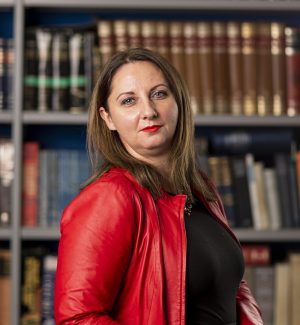
Prof. Dr Snežana Maletić
project manager
full professor at UNSPMF is a person responsible for managing the overall project. Her expertise in domain of environmental science is assessment of the bioavailability and biodegradability of organic pollutants in porous media, investigation of the process of sequestration and ageing of organic pollutants, characterization, and application of carbonaceous material. She has 62 publications (H-index 19, Scopus) and she has participated in 25 national and international projects, 2 of which she coordinated. Also, she is currently leading the Serbian part of a H2020 project (Phy2Climate). You can find more info about Prof. dr Snežana Maletić.
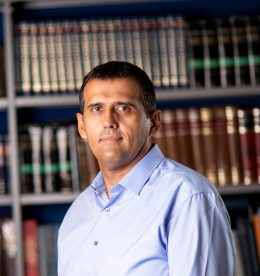
Prof. Dr Srđan Rončević
is a full professor at UNSPMF. Also, he is a Vice Dean for Science, International Cooperation and Development. His expertise in chemistry and technology of environmental protections includes remediation of contaminated sites (water, soil, and sediment), plant physiology and phytoremediation. He has 58 publications in high-ranking journals (H-index 23 Scopus). He participated in more than 90 projects, 6 of which he coordinated. You can find more info about Prof. Dr Srđan Rončević.
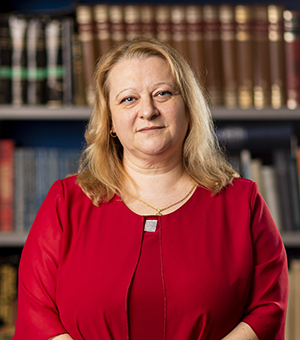
Prof. Dr Jasmina Agbaba
is a full professor at UNSPMF. She is currently Director of Department of Chemistry, Biochemistry and Environmental Protection. Her expertise in chemistry and environmental protection technology includes water quality, water treatment processes and chemical pollution related risk assessment. She has extensive experience in laboratory and pilot scale research. She published 70 publications in high-ranking journals (H-index 20 Scopus) and participated in more than 90 national and international projects, 10 of which she coordinated. She is currently leading the Serbian part of ∑!EUREKA project (SafeWat). You can find more info about Prof. Dr Jasmina Agbaba .
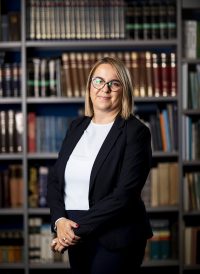
Prof. Dr Aleksandra Tubić
is a full professor at UNSPMF. With the involvement in more than 30 scientific projects related to field of environmental protection and technology, Aleksandra focused her scientific research on microplastics pollution including their identification and interactions with organic pollutants in surface waters and wastewaters, as well as drinking water quality and treatment (removal of natural organic matter, arsenic and organic micropollutants during water treatment), chemistry and technology of environmental protection and environmental engineering. Her Citation number (excluding self-citations) is 662 and Hirsch index (h index) is 14 (SCOPUS). You can find more info about Prof. Dr Aleksandra Tubić.
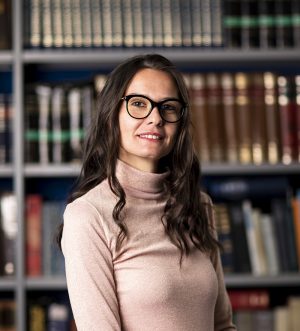
Prof. Dr Marijana Kragulj Isakovski
is associate professor at UNSPMF. She has expertise in the physical-chemical interactions in the environment with a focus on the fate of organic pollutants in the presence of carbon-based materials in batch and column experiments and transport modeling of organic pollutants. She published 45 publications in high-ranking journals (H-index 12 Scopus) and participated in more than 10 national and international projects, one of which she coordinated. You can find more info about Prof. Dr Marijana Kragulj Isakovski .
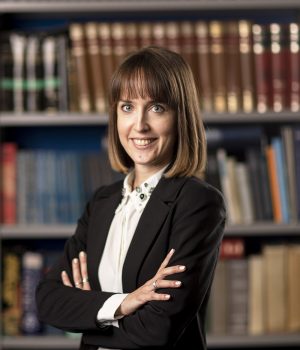
Prof. Dr Jelena Beljin
is associate professor at UNSPMF. She has expertise in the physical-chemical interactions in the environment with a focus on the fate of organic and inorganic pollutants, remediation techniques, bioavailability and biodegradability of organic contaminants. Also, her research includes use of organic amendments and phytoremediation of contaminated locations. She published 18 publications in high-ranking journals (H-index 7 Scopus) and participated in more than 20 national and international projects, one of which she coordinated. You can find more info about Prof. Dr Jelena Beljin.
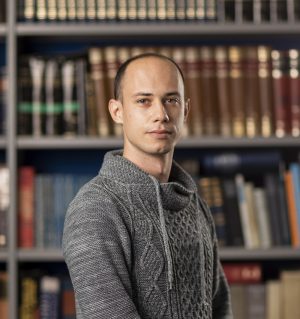
MSc Slaven Tenodi
is a teaching assistant and a PhD student at UNSPMF. Research field that he is mainly focused on is environmental impact and risk assessment, with particular interest in environmental impact of municipal solid waste landfills and groundwater quality. He participated in over 10 projects for the needs of the industry and public water supply, several national projects and international projects. He works as an analyst in accredited laboratory where he gained knowledge and experience using various instruments including AAS and ICP-MS. As a part of his research, he mastered the use of different MCDM/MCDA methods and multi-parameter pollution indices. You can find more info about MSc Slaven Tenodi.
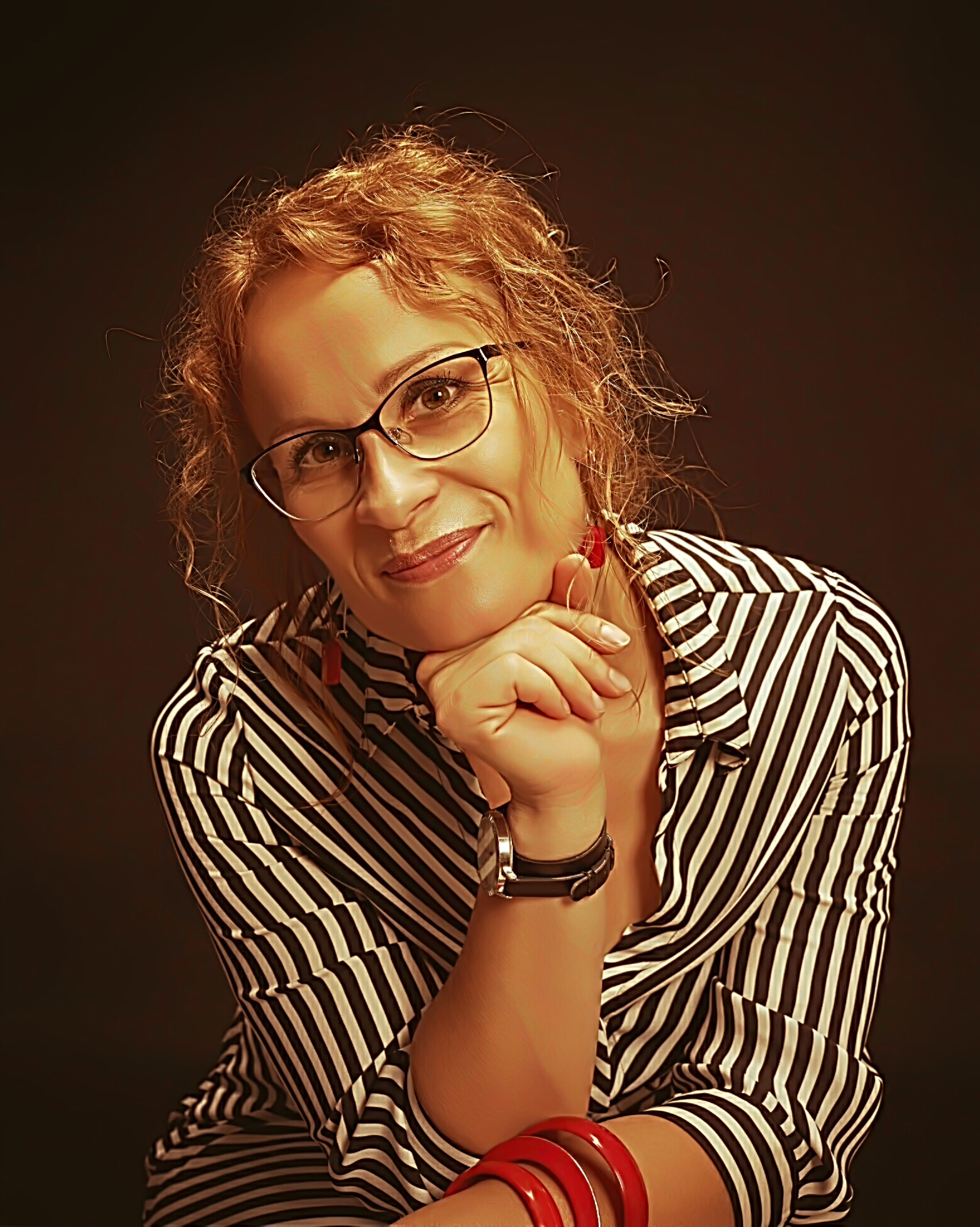
Gordana Vlahović
is Head of International Relations and Project Office of the University of Novi Sad Faculty of Sciences. She is in charge of comprehensive internationalization on the institutional level, coordination of international research programmes and projects, education abroad and academic mobility, international student and scholar services, research management and support in EU/global programs for research, institutional capacity building and policy making.
Gordana Vlahović is an US Fulbright Programme alumna (Hubert H. Humphrey Fellowship at the Pennsylvania State University, USA, 2018-19) and is also a Serbian National Contact Point for Horizon Europe programmes - European Research Council (ERC) and Marie Sklodowska Curie Actions (MSCA), as appointed by the Ministry of Science, Innovations and Technological Development of the Republic of Serbia.
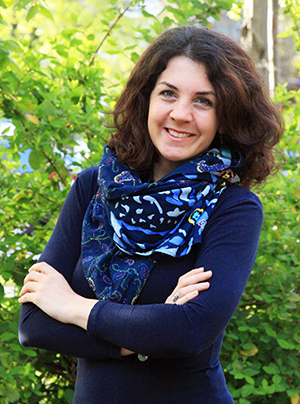
Ivana Pejović
is an International Relations Officer of the University of Novi Sad Faculty of Sciences. Her main role is coordination, implementation and promotion of the Erasmus+ academic mobility programme at the Faculty of Sciences. Her responsibilites are consulting and administrative support in education abroad and academic mobilities, as well as other tasks related to Faculty’s international cooperation (Summer School of Chemistry, bilateral agreements, international conferences etc.).
She has graduated her MSc in Molecular Biology at the University of Novi Sad Faculty of Sciences and she is an Erasmus Mundus Joint Master Programme alumna.
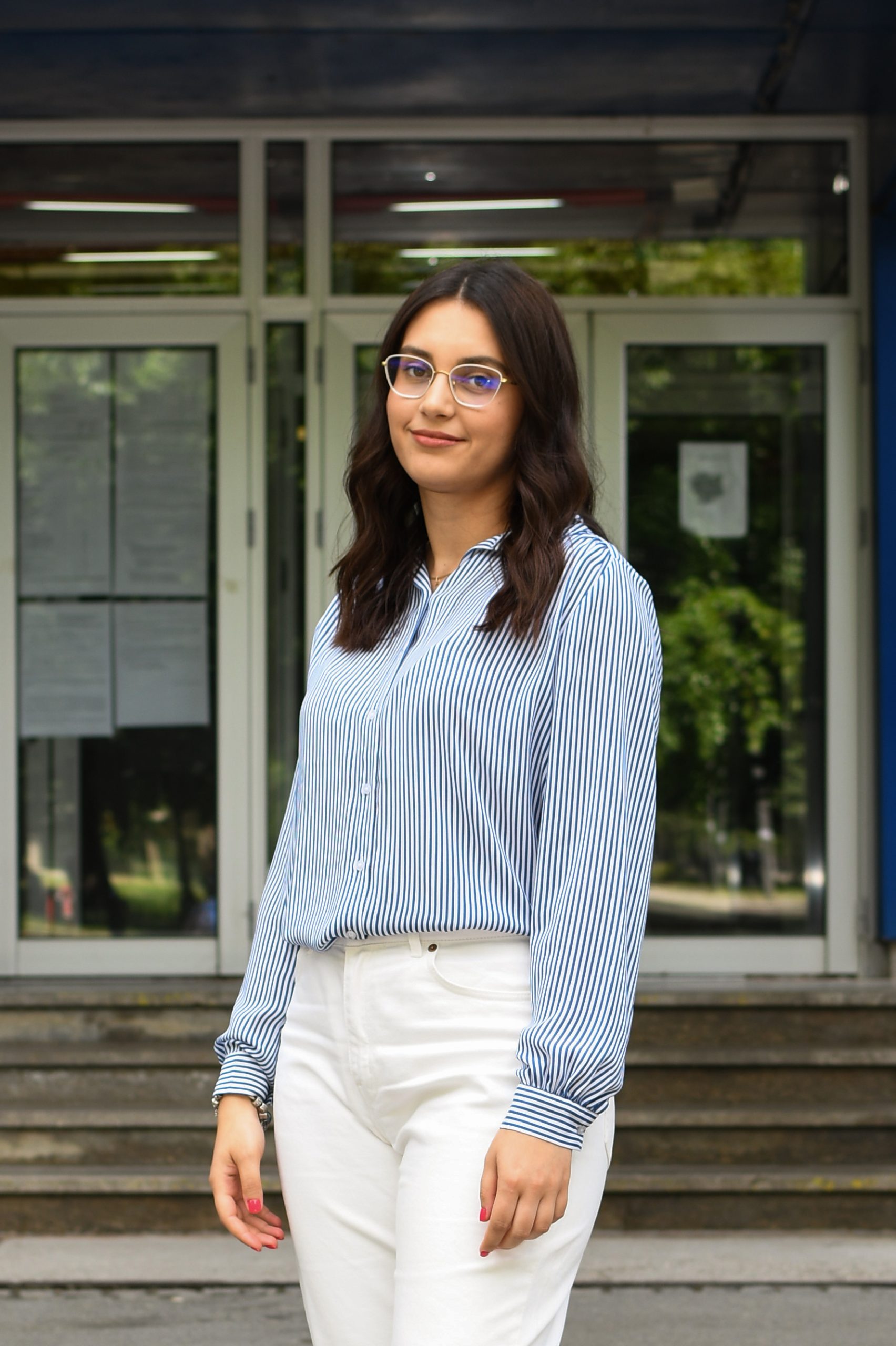
MSc Nina Đukanović
is a Junior Researcher and a PhD student at UNSPMF. Research field that she is focused includes remediation techniques (for soil and sediment) and transport and fate of organic and inorganic pollutants. Her work includes knowledge and experience using AAS, ICP-MS and GC-MS. She currently participates in 3 international projects. You can find more info about MSc Nina Đukanović.
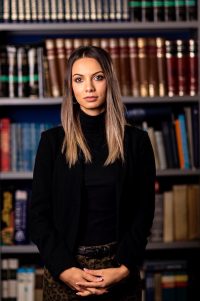
MSc Sanja Vasiljević
is a research assistant and PhD student at UNSPMF. The focus of her research is examining the presence of microplastics in the environment. Her PhD thesis includes an examination of the effectiveness of removing different types of microplastics from different water matrices using coagulation and flocculation treatment. She is currently a participant in 3 projects. You can find more info about MSc Sanja Vasiljević .
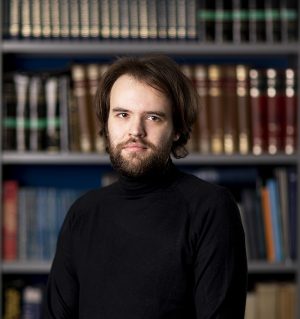
MSc Marko Šolić
is a PhD student and Junior researcher at UNSPMF. His expertise in domain of environmental science is characterization and examination of the application potential of different, predominantly carbon-based nanomaterials, for the purposes of treating water media contaminated with heavy metals by the adsorption process. He has also experience in running the semi-industrial plant, intended for testing the possibility of applying different technological solutions for the needs of obtaining potable water. He has 7 publications in high-ranking journals (H-index 5, Scopus) and he has participated in 6 national and international projects. You can find more info about MSc Marko Šolić.
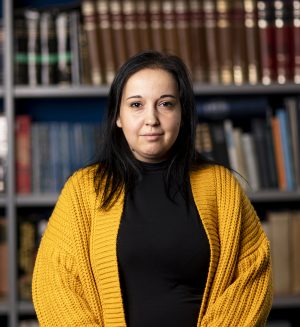
Dr Tamara Apostolović
Apostolović is a teaching assistant at UNSPMF. The focus of her scientific work has been on the fate of organic micropollutants in the environment, their interaction with new carbon-based materials, modeling of organic components sorption and transport in the environment, analysis of environmental samples using gas chromatography (MSD, µECD, FID). She has 8 publications in high-ranking journals (H-index 4, Scopus) and participated in 5 national and international projects. You can find more info about Dr Tamara Apostolović.
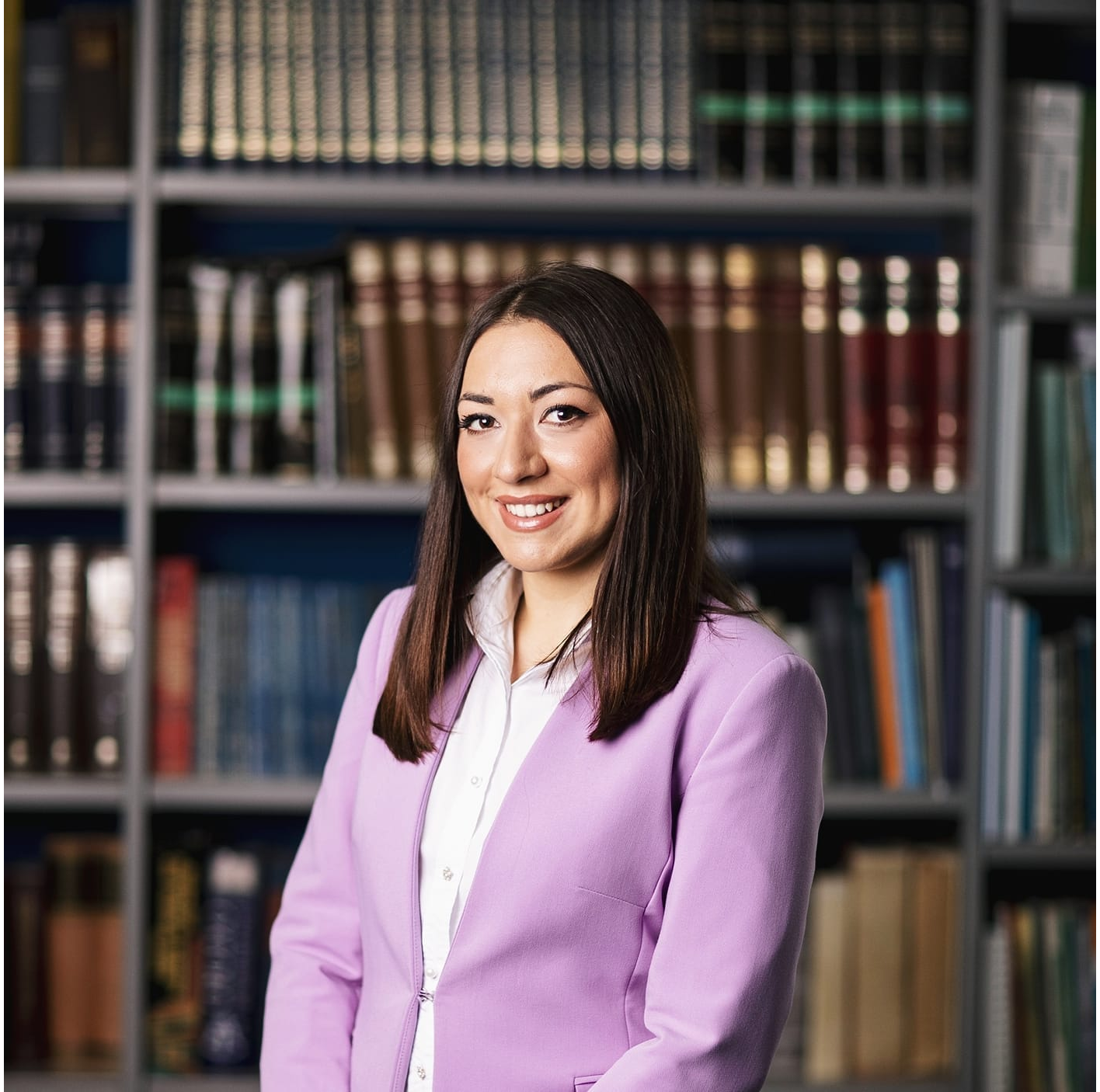
MSc Irina Jevrosimov
is PhD student in Environmental Protection and Junior Researcher at University of Novi Sad, Faculty of Sciences, Department of Chemistry, Biochemistry and Environmental Protection. Her research area is physical-chemical interactions in the environment with a focus on the fate of organic pollutants in the presence of carbon based materials. She is the author or coauthor of 2 publications in high-ranking journals (H-index 1, Scopus). You can find more info about MSc Irina Jevrosimov.
University of Vienna

Prof. Dr. Thilo Hofmann
Hofmann is a Professor of Environmental Geosciences at UNIVIE. He is an expert in groundwater modelling and nanogeosciences. He is Vice Director at the Centre for Microbiology and Environmental Systems Science, Vice Head at the Department of Environmental Geosciences and Director of the Environmental Research Network with 230 members from all faculties which will be a valuable resource to network and disseminate results within TwinSubDyn. He will be involved in the groundwater modelling part of TwinSubDyn and share his extensive knowledge on research strategy development. He published more than 200 papers in high-ranked journals (H-index 51, Scopus). You can find more info about Prof. Dr. Thilo Hofmann.

Asst. Prof. Dr. Gabriel Sigmund
Sigmund is a Research Faculty member at UNIVIE and an Assistant Professor at Wageningen University and Research. He is an expert in the mobility of organic contaminants, including highly mobile ionizable compounds, as well as the characterization of biochar and its interactions with SOM. He is interested in the multiple facets of pyrogenic carbon (i.e., wildfire charcoal, biochar, activated carbon) and emerging organic contaminants. In his research he aims to decipher processes in natural environments (post-fire landscapes), semi-engineered systems (agricultural soils), and engineered systems (remediation applications). He published more than 30 papers in high-rankedd journals (H-index 14, Scopus). You can find more info about Asst. Prof. Dr. Gabriel Sigmund.

Dr. Thorsten Hüffer
is an expert in microplastic research with a special focus on organic contaminant dynamics related to sorption and leaching processes to and from microplastics. His research interest includes fate and effects of emerging contaminants including microplastics in the environment; application of nanomaterials in analytical chemistry pre-concentration techniques; phase transfer processes: (modeling of) fate and transport of organic compounds in environmental systems. He published more than 30 papers in high ranked journals (H-index 18, Scopus). You can find more info about Dr. Thorsten Hüffer.

Dr. Frank von der Kammer
is an expert in the characterization and analysis of engineered nanoparticles, environmental colloids, nanoparticle characterization and field-flow fractionation. He has extensive experience in leading work packages in large European projects and will share his in dept knowledge on nanogeoscience as well as the inner workings of European projects in TwinSubDyn. He published more than 100 papers in high ranked journals (H-index 47, Scopus). You can find more info about Dr. Frank von der Kammer.

Asst. Prof. Dr. Michael Zumstein
is an Assistant Professor at UNIVE and an expert in the biotransformation and biodegradation of anthropogenic chemicals in natural and engineered environments. Chemicals of particular interest include peptide-based antibiotics and antimicrobial peptides, as well as plastics and water-soluble polymers. The focus of his research lies on elucidating biotransformation pathways and on characterizing enzymes that catalyze these processes in chemical-receiving environments. His expertise on elucidating transformation pathways and the role of enzymes therein will be applied to investigate organic compound transformation, including pharmaceuticals and pesticides. He published more 20 papers in high ranked journals (H-index 13, Scopus). You can find more info about Asst. Prof. Dr. Michael Zumstein.

Dr. Martin Stockhausen
Stockhausen is senior scientist and lab manager at UNIVE. His responsibilities include the inorganic laboratories including ICP mass spectrometry. Among other projects, he is involved in the study of nanominerals and nanoparticles and their role in the transport of contaminants. In addition, he has expertise in the interactions of organic matter with the rock matrix and the pore water and the resulting fractionation processes (geochromatography). You can find more info about Dr. Martin Stockhausen.

Dr. Katharina Sodnikar
is senior scientist and lab manager at UNIVE. She contributes to research and education in environmental organic chemistry. More specifically, she develops analytical tools to detect organic chemicals such as tire additives, pharmaceuticals, pesticides, water-soluble polymers, and per- and polyfluoroalkyl substances (PFASs), as well as potential degradation products thereof. Moreover, she has expertise in environmental fate processes of macromolecules such as double-stranded ribonucleic acids (dsRNA) and deoxyribonucleic acids (DNA). You can find more info about Dr. Katharina Sodnikar.
Forschungszentrum Jülich

Prof. Dr Roland Bol
is a Research leader in Helmholtz Forschungszentrum Jülich in Germany of soil organic matter dynamics and elemental cycles, Professor of Biogeochemistry in Bangor University (UK) and Special Visiting Chair - Professor of Terrestrial Biogeochemistry (University of Amsterdam, NL). His research interest is on the complex biogeochemistry processes that occur at the soil-water-air interface in natural and agricultural ecosystems. Ca. 325 published academic papers in peer reviewed international journals (H-index 56), with an emphasis of understanding how isotope signatures can be used as tracers of carbon, nutrients and sediments in the environment. You can find more info about Prof. Dr Roland Bol.

Prof. dr Lutz Weihermuller
is a Senior Researcher at Forschungszentrum Jülich. He specialized in soil physics and soil/crop modeling, and performed various field experiments for solute transport, carbon dynamics and plant growths analysis. He is co-developer of the agroecosystem model AgroC, which is a physical based water, heat, solute, and gas transport model including the biogeochemical cycling of C and N as well as crop growth. He published >110 academic paper in peer reviewed international journals (H index 33), on different topics ranging from pesticide transport, carbon turnover, crop growth to soil physics and hydrogeophysics. You can find more info about Prof. dr Lutz Weihermuller.

Dr. Jens Kruse
is a postdoctoral researcher at the Research Center Jülich who focuses on the effects of human activities and land use changes on soil nutrient distribution and availability. He has extensive experience in analysing the different forms and pools of phosphorus in various environmental samples as well as exploring the potential of alternative fertilizers on plant nutrition, Additionally, he has published several studies on the occurrence and fate of heavy metals in soil environments, as well as the impact of land use changes on distribution of antibiotics/pesticides, soil nutrient cycling, and soil health. Through his work, he tries to shed light on the complex relationship between soil properties, structure, and human activities in shaping soil nutrient availability and cycling. You can find more info about Dr. Jens Kruse.
Martin-Luther-Universität Halle-Wittenberg

Prof. Dr. Bruno Glaser
Glaser has been studying the effect of various organic, mineral or mixed amendments on soil organic matter dynamics and nutrient cycles, both in agricultural and non-agricultural systems for more than 25 years. He is one of the pioneers in Terra Preta and biochar research. The work includes laboratory and field experimental and policy related work on Terra Preta and biochar. He has extensive experience in field trial experiments and was included in realization of the project BMBF 01LY0909F and Small-plot trial: Climate-garden Halle. His research interest lies on environmental aspects of organic amendments, identification and quantification of soil processes, non-destructive and non-invasive methods and sustainable use of natural resources. Furthermore, he has a professional education in statistical analysis including layout of field experiments and well as big data approaches including meta-analysis. He published more than 200 high ranked papers (H-index 60). You can find more info about Prof. Dr. Bruno Glaser .

Arthur Gross
is a PhD student in soil biogeochemistry at Martin-Luther-University. His research interest covers soil carbon cycles, biochar biogeochemistry, climate-smart agriculture, life cycle assessments and meta-analysis. In his PhD thesis, he investigates the fate of biochar in agroecosystems and long-term effects of soil amendments (including biochar) on soil carbon stocks. Furthermore, he teaches life cycle assessment and meta-analysis methods in different university courses. You can find more info about Arthur Gross.
Spanish National Research Council

Heike Knicker research professor at the Instituto de la Grasa- CSIC
is research professor at the CSIC-IRNAS and is chief of the solid-state NMR service unit of the institute. She has worked for over 25 years in the field of soil and geochemistry along with the analysis of coal, charcoal and biochar and their impact on soil systems. In 2016, she was awarded the Philippe Duchaufour Medal of the EGU for outstanding research in the field of soil organic matter research. She has been the PI of approximately 15 international and national research projects, the secretary of the International Humic Substance Society (IHSS) (2012-2019). From 2012 to 2014 she was vice chair and from 2014 to 2016 leader of work group 1 of the European Biochar Research Network, granted by the European COST Action. Her H index is 67. You can find more info about Heike Knicker (Prof. Dr. rer. nat. habil.).

Dr. José A. González Pérez
Pérez is a researcher at IRNAS-CSIC. His scientific and technical activities embrace basic research as well as applied research for technology transfer and consultancy for public and private companies and development agencies. His main actual research lines are in the field of environmental organic geochemistry, including organic matter and soil health, refractory C forms in nature, molecular characterization of soil organic matter and its agronomic and environmental implications, biogeochemical markers in soils and sediments. He published more than 100 academic papers in peer reviewed international journals (H-index 30). You can find more info about Dr. José A. González Pérez.

